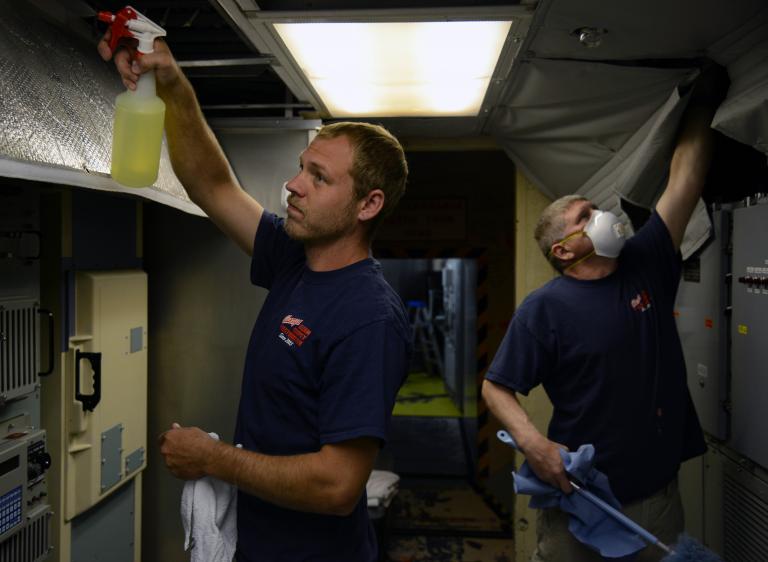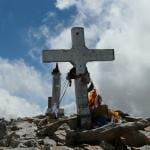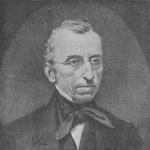The coronavirus epidemic throws the doctrine of vocation, a prevailing theme of this blog, into high relief.
True, the most wide-spread effect of the epidemic has been to put much of the entire economy on “pause,” putting lots of people out of work, forcing many of those who still have jobs to change everything by working at home, and thwarting the normal course of vocations by not letting people leave the house.
But these challenges to vocation can cause us to understand and appreciate the concept at a deeper level. Vocation is not just about how we make our living. It’s about how God works through human beings to care for His creation. It’s about loving and serving our neighbors in our multiple stations of life.
COVID-19 and the Economic Vocations
To be sure, our economic employment is one facet of our vocations. The epidemic has turned some of the ways we look at work, whether our own or that of others, upside down .
For example, the quarantine shutdowns have created a distinction between “essential” and “non-essential” workers, with the former being allowed to still work despite the quarantines and the latter being required to stay home. Someone made the observation that many of the “good jobs” people went to college for turn out to be non-essential, whereas the lower-status blue-collar jobs turn out to be what’s really essential.
That’s an overstatement, of course, since many highly-trained professions–such as doctors, nurses, and medical researchers–are deemed “essential,” and many blue-collar workers, such as those in the restaurant industry, are not allowed to work.
But the epidemic has forced us all to appreciate the vocation of grocery store stockers, warehouse employees, food processors, farmers, truck drivers, utility crews, cleaners, and, in general, those with what Mike Rowe calls “dirty jobs” that the rest of us depend on for our very lives.
Certainly, the medical workers are heroes of the epidemic. But these other folks have been called the “unsung heroes.” Those people in both categories who can’t work from home are out in the epidemic where they could very well contract the virus, risking their lives–with some having already given their lives–in service to their neighbors.
High status “good jobs” are often their own reward, though they are often accompanied by generous remuneration. Sometimes even Christians assume that vocation has to do with their own self-fulfillment, rather than serving one’s neighbor. But jobs that are exhausting, tedious, and low-paying often serve the neighbor in more fundamental ways than do vocations held in greater esteem by the world. Those who do “dirty jobs” exemplify the self-denial and “daily” cross-bearing of sacrifice for others that Jesus commends (Luke 9:23).
Certain occupations may not be “essential,” but they are still valuable. Having to work at home–teachers trying to figure out how to use distance learning software, office workers shifting their tasks and communications online–means fulfilling our duties in new ways, thus “defamiliarizing” our work. Breaking out of the routines and having to approach our work in different ways can bring new life to a vocation.
As for those thrown out of a job completely, they are faced with the prospect of finding a new economic vocation. The Wall Street Journal has published an article saying that the epidemic has become a catalyst for a massive global reallocation of labor, with workers leaving epidemic-ravaged industries in favor of the booming hiring in those “essential” services.
COVID-19 and the Church Vocations
Significantly, in most jurisdictions, pastors are classified as “essential.” Corporate worship services might be forbidden along with other public gatherings and nursing home visits may be prohibited, but pastors can be out and about in otherwise deserted streets to go to the church to work out online services and carry out their ministry in creative ways.
Churches are hit hard by the quarantines. We need to worship in the real presence of other Christians. Meeting together online or giving pastoral care over the phone is not the same. But not being able to makes us crave it all the more.
Those with church work vocations–those who are “called” to the ministry of the Gospel–are laboring under great challenges. Those of us with lay vocations need to remember to continue to pay our tithes and offerings, even in the absence of an offering plate!
This enforced isolation is also an opportunity for spiritual growth. How many times have we told ourselves that we just don’t have time to read the Bible or that we are too busy to spend time in prayer? Well, you have time now.
COVID-19 and the Family Vocations
Our most fundamental vocations are in the family–as husbands and wives, fathers and mothers, sons and daughters.
The family, it has long been said, is an institution with serious problems, to the detriment of both the individuals involved and society itself. With both parents working, children are often left to fend for themselves, which often does not go well. Fathers in particular often spend little time with their children. Meanwhile, husbands and wives often have little time for each other, resulting in weak and troubled marriages.
We’re just too busy! We have to work! The kids are all involved with their school and are always out with their friends! We don’t have time!
Well, we aren’t so busy now. For many of us, at least, we don’t have to go to work. School has been cancelled. No one can go out with their friends. We have time.
This could be the occasion for recovering our vocations in the family. That is, for loving and serving our spouses, children, and parents.
COVID-19 and the Vocations of Citizenship
Politics, even in an election year, has been all but driven out of the headlines. Our nation was sharply polarized, even pulled apart, politically. Now, with the coronavirus threatening everyone, we are all in this together.
Governments themselves had been reduced to just political theater. But now, facing an immediate threat to the lives of Americans and an economic shutdown, government leaders are being called upon to exercise their vocation of loving and serving their citizens by protecting their lives and livelihood. Many of them have been taking forceful action to do so. This is true not only on the national level, but also with state and local governments.
Politics remains, of course, and some of our politicians are playing the usual games. And the virus is raising further political issues about the cost of bailouts, the prudence of shutting down the economy, the danger of violating the rights of citizens in an effort to keep them healthy, what the priorities should be, etc., etc.
We are seeing a new emphasis on the common good, though there remain many disputes about what that entails and how to promote it.
These issues call on the vocations of our government officials, but also the vocations of us citizens. We too must sort out these questions as we decide on what policies we should favor and who we should vote for.
The vocational question for citizens is the same as for all of the other vocations that we hold: How should we love and serve our neighbors during the epidemic?
In that light, our duties as citizens would include obeying our lawful officials in the measures they require of us–that is, observing quarantines, following social distancing rules, avoiding large gatherings, etc.–doing our best not to infect our fellow citizens, and extending help to the best of our ability according to our own vocations to those who are infected.
Photo credit: Dustin Barnes, left, and Kim Barnes, co-owners of a Great Falls cleaning company, U.S. Air Force photo/Airman 1st Class Dillon Johnston [public domain]














